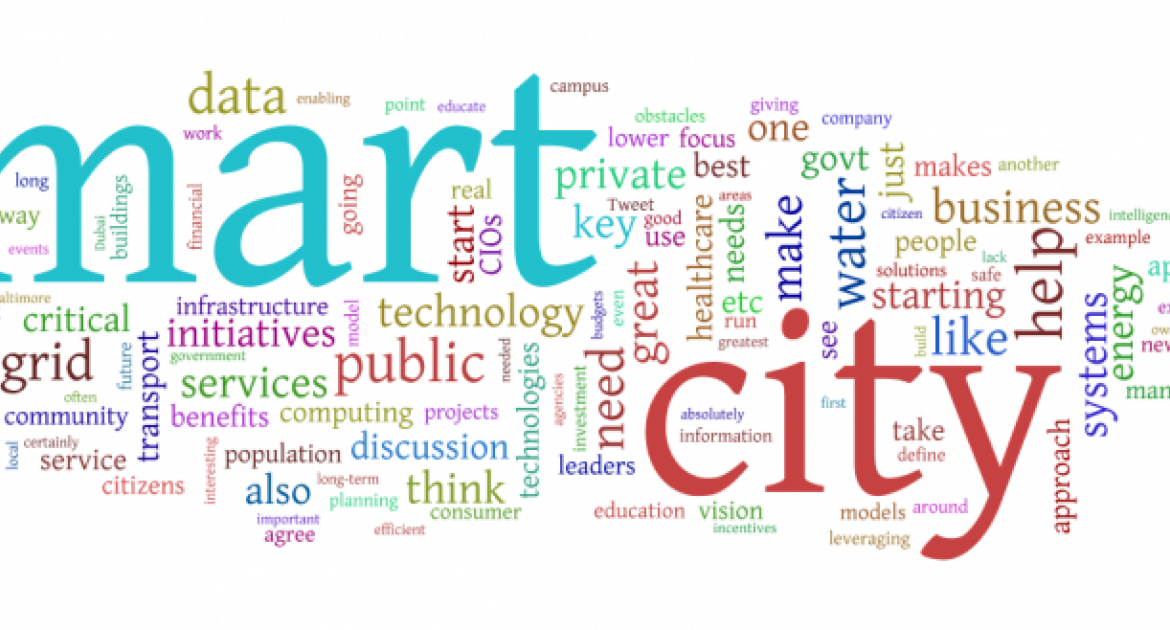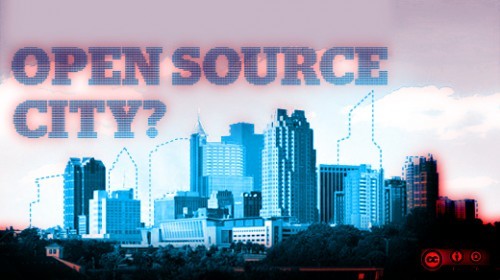City and Commons Workgroup


Image by Joshua Gajownik modified by Francesco Cingolani. CC by-sa.
> Workgroup presentation and objectives
> About the City and the Commons
> Calendar
Workgroup presentation and objectives
"In 2012 Medialab-Prado's Commons Lab will begin a workgroup focusing on the City and the Commons. Like all of Medialab's groups, this workgroup will be open, aspiring to integrate the many individuals and groups that are actively participating in the fields of interest for this topic, allowing Medialab-Prado to support their actions and reflections, which can possible lead to collaboration as well as to broaden the debate and communication on these experiences. The objective is to develop a continuous work program that can also serve as a space for encounters including Medialab's other programs such as Visualizar or Interactivos?, in which other activities related to the city take place, as well as the numerous collectives that actively work with public space, technology and civic participation in Madrid and elsewhere. Another objective is to give boost to new projects complementing the ones that have already begun by developing them through the interaction of the various disciplines and sensibilities of the group´s participants.
We aim to create a space for encounters where projects can be developed and reflect on the confluence of the city, technology and governance. We have initially identified three main activity areas as a first step in the design of the group: infrastructures (maps, sensors…); fields related to urban life (nutrition, mobility, public space, energy…); and theory (participation, governance, narratives, public space).Aiming to understand the processes of civic empowerment and the transformations that governance in contemporary cities must undertake in order to allow them to be more inclusive, vital, human and sustainable, the group begins as a critical and constructive response to the emerging Smart Cities (intelligent cities), which explore and reflect on the impact of social and technological changes in urban spaces.
About the City and the Commons
Technological developments in the last decades and digital technology in particular have allowed the irruption of an urban model known as smart cities, which unfolds the use of sensors of all kind, controlled by the public administration and service providers allowing to monitor urban life in real time (weather, traffic, flow of people, contamination…). This model could bring a type of management that adapts to citizen's necessities. However, the concept of intelligent cities carries on the conventional model of urban planning (hierarchical and bureaucratic) based in the plans of experts and politicians. One of this model's risk is that by broadening citizen's control, the potential of civic participation might decrease as the complexity and automatism in decision-making becomes apparent.
Nowadays, the problem with urban planning is not technology, but the model of the city, its management and governance. Smart Cities incorporate the argument that the complexity of the cities and its management makes the existence of a centralized planning in control of all processes essential. This argument seeks to maintain and strengthen the status quo of politics, managers, and service and infrastructure providers. Nevertheless, this argument does not consider that centralized planning presents evident limitations and has failed in many ways, thus generating malfunctions in urban life (from real estate bubbles to traffic congestion of personal vehicles to the elimination of diversity due to zoning.
In contrast to this vision on the changes provoked by technology, we find that digital technology has intimately hybridized our behaviors and has configured systems that can be defined as social technologies. Social technologies could be characterized as any type of technology (infrastructure, hardware, software, web services…) capable of being used to empower and coordinate the citizen and, specially, for the autonomous development of collaborative projects. These technologies are designed in an open mode in order to maximize the probabilities of civic appropriation, allowing a reconfiguration and remix of their use varying from their original purpose. A technology, then, can become social when there is a community of users incorporating it to their daily practices giving them an innovative use. Social technologies are the vehicles of a new, emerging form of urban planning or P2P (peer-to-peer). This approach represents an alternative way to build the city from bottom to top, using knowledge and civic action in dialog and collaboration with experts and planners.
In recent years, this emerging focus (or P2P) on urban planning has demonstrated its active capacity to develop individual projects and negotiate with the power on the citizen's behalf. Among the examples that illustrate its viability and transforming capacity are projects and actions in the fields of technology and information: the open data movement and development of civic actions; the display of distributed sensor networks and the creation of platforms for sensor and data management (such as COSM, previously known as Pachube); the technological development of sensors with lower rates and a wider spectrum or registered variables (including all the possibilities that an open hardware, like Arduino, can offer); the development of civic infrastructures (like guifi.net's wi-fi); and civic info-structures (from Wikipedia to FixMyStreet or OpenStreetMap). In the field of civic participation we find an increasing number of collectives practicing local urbanism (communities of professionals, amateurs and users) aiming to recover and/or create public spaces and fill them with activity. In this sense, the city of Madrid has experienced the creation of many of these collectives in recent years, which makes City and Commons workgroup in a space like Medialab, where many active communities explore innovative uses of technology and where the Commons Lab reflects on new governance models from the action, a far more interesting endeavor." Por Juan Freire
Calendar
01.02.2012 / 5:00 pm: General Meeting of the Commons Lab: The City and the Commons. [+info]
10.02.2012 / 6:00 pm: Session 1. Presentation of the workshop "A Bicycle Lane in Madrid is Possible" [+info]
11.02.2012 / 11:00 am: Internet of Things (and People) Madrid [+info]
18.02.2012 / 11:00 am: Barcamp on the City and the Commons [+info]
24.03.2012 / 10:00 am(Lavapiés): Login Madrid: Shopping at the San Fernando Market in Lavapiés [+info]
31.03.2012 / 11:00 am: City Camp: 2nd Internet of Things and People Encounter (IoT)[+info]
08.06.2012 / 17:30 pm - 20:00 pm: Presentation Air Quality Egg, an Open-Source Device for Measuring Air Quality [+info]
09.06.2012 / 11:00 am - 20:00 pm: Workshop on the Air Quality Egg, an Open-Source Device for Measuring Air Quality [+info]
15.06.2012 /18:30 pm - 21:00 pm y 16.06.2012 / 11:00 am -9:00 pm: Citycamp: Citizens with Energy[+info]
29.06.2012 - 30.06.2012 Hackity: Creative Problem Solving and Service Design Methodologies for Urban Innovation Presentation and Workshop [+info]



 Medialab-Matadero Madrid
Medialab-Matadero Madrid